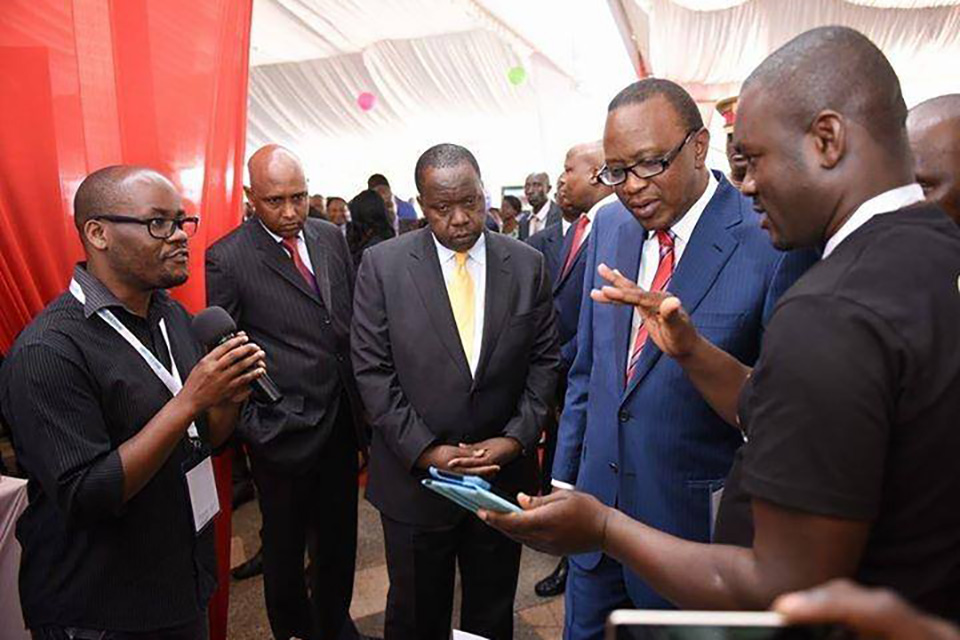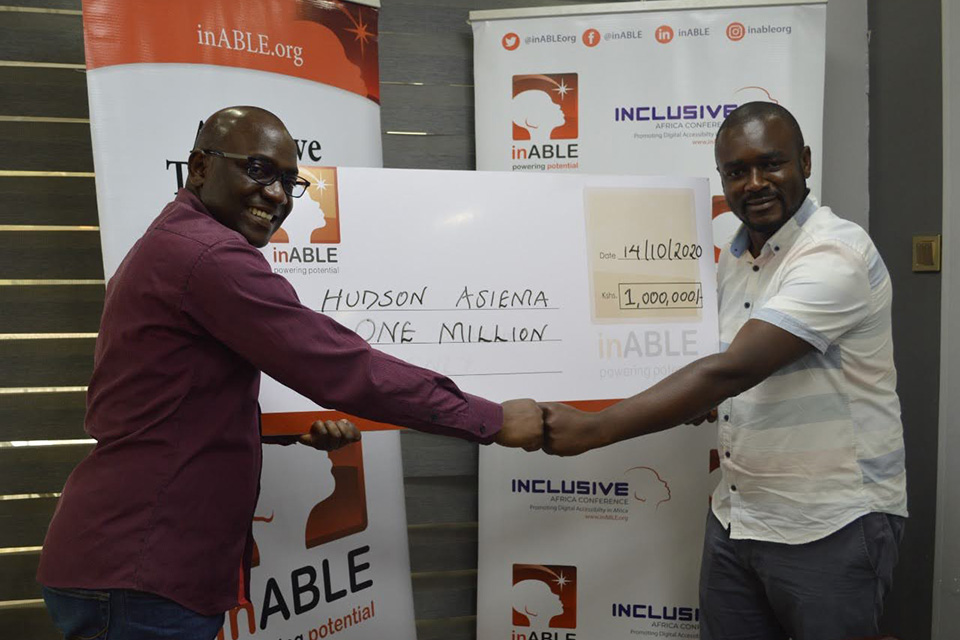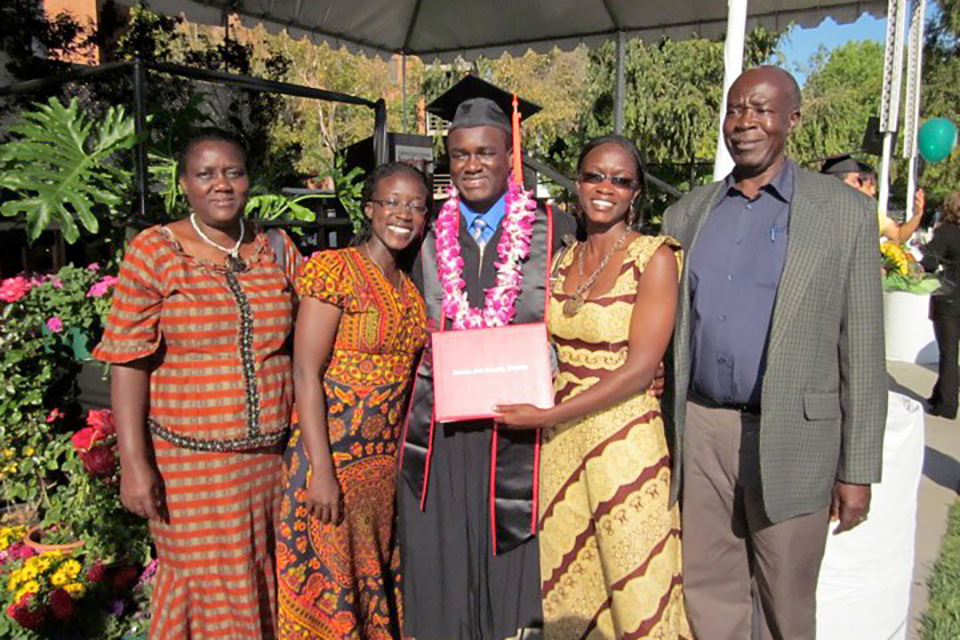CSUN Alumnus is Making a Global Impact in the Deaf Community
At just 4 years old, Kenya native Hudson Asiema contracted meningitis, resulting in him becoming deaf. This life-changing event was the start of his inspirational journey to improving Deaf education and communication.
A CSUN alumnus and software developer, Asiema ’10 (Computer Science) is making a global impact in the Deaf community. He is the co-founder and CEO of startup company Deaf eLimu Plus (eLimu is Swahili for education). The company provides innovative educational products and tutorial services in Kenyan Sign Language (KSL) and American Sign Language (ASL).
The company’s products include Sign Language Dictionary Bot, which enables users to ask for a word or phrase in sign language; Sex eLimu, a sexual-health education app; KSL Online Dictionary, an app that allows users to search for a word in sign language; ABC Fingerspelling Pro, an app that helps users learn and practice fingerspelling; Fingerspelling Pro for Kids; and KSL Fingerspelling Pro.
Asiema originally came to the United States seeking a better education as a Deaf student. He started at Ohlone Community College in Fremont, Calif., where a counselor recommended he transfer to CSUN due to its stellar reputation for Deaf education.
CSUN offers services to Deaf and hard of hearing students through the National Center On Deafness (NCOD), such as communication access, leadership opportunities, scholarships, direct communication classes and more, and because of this CSUN was a top choice for Asiema to further his education.
“NCOD gave me interpreting, note-taking, and caption service in mainstreamed classes [as well as] math and English tutoring,” said Asiema.
During his time at CSUN Asiema worked closley with lecturer Jack Alanen, his transfer and computer science advisor. He said Alanen helped him navigate his journey in the challenging field of computer science from his first day until graduation.
In addition to academic support, he also credits CSUN with playing an important role in the development of Deaf eLimu Plus and its products. It grew from an idea he had for a senior class project, Asiema said: How to search for a word in sign language.
“As a senior student in a software engineering course, I pitched Sign Language Dictionary to my team of students because I was curious how to develop it on a simple website,” Asiema said. “I used an ASL CD-ROM to learn some sign language, but I didn’t see any sign language dictionary on a simple website [such as] Google.”
The products he has created since have been downloaded more than 18,000 times and have the potential to reach a community of 600,000 Kenyans who are Deaf. By creating these products, Asiema said, he is trying to close educational gaps, decrease the language barrier and create more inclusivity for the Deaf community.
Asiema has been recognized for his efforts, including being asked to speak at prestigious conferences such as Facebook’s F8, which recognizes the global developer community.
Recently, during the first Inclusive Africa Conference 2020, Asiema was honored with the Digital Accessibility Innovation Award and a $10,000 prize for the Fingerspelling Pro for Kids app. This conference recognizes innovative accessibility efforts, and the award celebrates people who develop assistive technology that improves the lives of everyone, especially those with disabilities, in Africa.
Asiema has faced many challenges on his journey of innovation. Obstacles have included lack of support, funding, information access, having few Deaf developers in his field in Kenya and communicating with the Kenyan government.
“My entrepreneurship journey is not easy, but I believe in myself [and] that I can try my best to solve problems using new technologies,” Asiema said.
Growing up in and moving back to Kenya after graduation, Asiema said he recognizes that the country faces challenges such as a lack of Deaf education and technology for many schools. He hopes that as more access becomes available, the apps he has developed will be helpful.
Asiema said he plans to continue developing innovative technology in support of the Deaf community and has high hopes for the impact he can make for a global community in need.
“My goal is to create something using artificial intelligence in the future, so it will enable Deaf people to [better] communicate,” he said.




 experience
experience